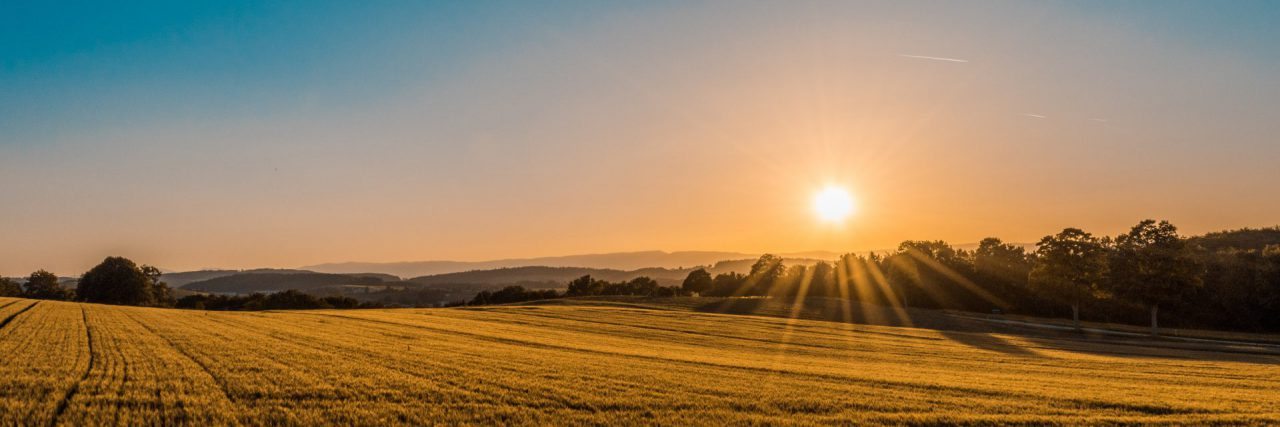A new report exploring the voluntary ecosystem services market in the UK considers the potential to boost funding for sustainable agriculture and conservation through private investment.
The report, ‘Exploring ecosystem markets for the delivery of public goods in the UK was jointly funded by the GFS project Resilient Dairy Landscapes and the Yorkshire Integrated Catchment Solutions Programme (iCASP), a Natural Environment Research Council (NERC) programme.
Payments for ecosystem services are incentives to managers of natural resources, such as farmers and landowners, that recognise the economic and cultural benefits that healthy ecosystems bring to society, including fresh water, food and opportunities for recreation.
The research team identified several public/private schemes that have emerged in the UK, highlighting synergies, examples of good practice, and challenges to implementation. The findings indicate that organisational structures which ensure transparency, and reduce the potential for power asymmetries, are important for successful implementation of these schemes. Challenges outlined in the report include the complexity of demonstrating the permanence of benefits, and the costs involved in monitoring any benefits. Another red flag is the potential for ecosystem service trade-offs, where investors have competing priorities, or when multiple interventions are combined, leading to the delivery of one benefit, for example climate mitigation, at the expense of another, such as biodiversity.
The report comes in the wake of Defra’s announcement in March 2020 of a new £640M Nature for Climate Fund. This will leverage private sector investment to see more than 40 million trees planted as well as the restoration of 35,000 hectares of peatland in England. Prof. Mark Reed (Newcastle University), is the principle investigator on the GFS project Resilient Dairy Landscapes and a co-author of ‘Exploring ecosystem markets for the delivery of public goods in the UK’; he believes the findings of the report are timely. “Although public funding for agriculture has been guaranteed at pre-Brexit levels till 2024, most commentators agree that with a global economic downturn, funding is likely to drop significantly after that” he says.
“This gives us time to find alternative sources of funding for sustainable agriculture and conservation. Defra is designing new schemes that will leverage private investment in nature, and our research brings to light lessons from existing private schemes to ensure they are as good for farmers as they are for nature.”
Prof. Guy Ziv (University of Leeds), a co-investigator of Resilient Dairy Landscapes project and co-author to the report, believes there is an appetite in the private sector to support sustainable agriculture. “Investing in nature has moved, over the last year or so, from the corporate social responsibility (CSR) agenda to the companies’ bottom line. Many businesses have already done all they can to reduce their emissions at source; they want to go further by investing in UK projects that will mitigate climate change while enhancing biodiversity” he says. “Other companies are investing in nature to mitigate risks to their supply chains, as concerns grow that summer droughts, extreme weather events and new diseases will increasingly disrupt the agriculture sector.”
The research is already being used by Defra and NatureScot to develop post-Brexit payment schemes that leverage, rather than outcompete, private funding for agriculture and conservation. “We are now working with a consortium to explore the feasibility of a UK Farm Soil Carbon Code”, says Prof. Reed. “This could channel even more private investment into the sector, helping farmers diversify income sources and transition to more regenerative practices.”
Notes to editors
- Report citation: Gosal, A, Kendall, H., Reed, M., Mitchell, G., Rodgers, C., and Ziv, G. (2020). Exploring ecosystem markets for the delivery of public goods in the UK. Yorkshire Integrated Catchment Solutions Programme (iCASP) and Resilient Dairy Landscapes Report DOI: https://doi.org/10.5518/100/48
- The Resilient Dairy Landscapes project integrates the latest social, economic, natural, and veterinary science with the expertise of farmers and the dairy industry to devise and test innovations that will increase the resilience and sustainability of dairy farming in a rapidly changing world.
- The Yorkshire Integrated Catchment Solutions Programme (iCASP) is a 5-year research translation programme, funded by the Natural Environment Research Council which aims to facilitate the growth of a strong and sustainable regional network to pioneer a more integrated approach to catchment management and develop knowledge and expertise to share nationally and internationally.


